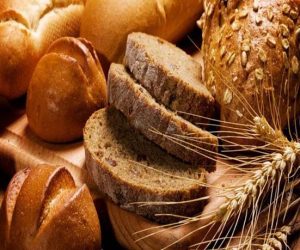Isoleucine is a branched chain amino acid (BCAA) and by default also an essential amino acid (EAA). Isoleucine is important for protein synthesis and other anabolic and anti-catabolic processes in the body. Isoleucine is best taken together with the other BCAAs or leucine and valine. Though it’s considered safe, some are convinced it has potentially dangerous health effects.
What Is L-Isoleucine?
L-Isoleucine is an essential amino acid, which means that humans cannot synthesize it, so it must be ingested. It appears as a white crystalline powder. Foods that have high amounts of L-Isoleucineinclude eggs, soy protein, seaweed, turkey, chicken, lamb, cheese, and fish. This product is often used as a food additive and nutrient in dietary supplements.
Possible Side Effects of L-Isoleucine
L-Isoleucine is generally considered a safe ingredient. The side effects may: Intake of Isoleucine can lead to nausea. Large doses can result in a stomach upset and indigestion.
GRAS Affirmation: Yes
Generally recognized as safe (GRAS) is an American Food and Drug Administration (FDA) designation that a chemical or substance added to food is considered safe by experts, and so is exempted from the usual Federal Food, Drug, and Cosmetic Act (FFDCA) food additive tolerance requirements. L-Isoleucine is considered safe by FDA.
Suggested Dosage
NA.
Special Populations Precaution
There is a lot of concern about diet and nutrition for these population, like Newborns, children, pregnant, sensitive to L-Isoleucine populations. Better consult to your doctor if you would like to intake L-Isoleucine.
Related Research
1. Local rhamnosoft, ceramides and L-isoleucine in atopic eczema: a randomized, placebo controlled trial. [Pediatr Allergy Immunol. 2014 May] Author: Marseglia A, Licari A, Agostinis F, Barcella A, Bonamonte D, Puviani M, Milani M, Marseglia G.
2. Reductive amination by recombinant Escherichia coli: whole cell biotransformation of 2-keto-3-methylvalerate to L-isoleucine. [J Biotechnol. 2013 Nov] Author: Lorenz E, Klatte S, Wendisch VF.
3. L-Leucine and L-isoleucine enhance growth of BBN-induced urothelial tumors in the rat bladder by modulating expression of amino acid transporters and tumorigenesis-associated genes. [Food Chem Toxicol. 2013 Sep] Author: Xie XL, Kakehashi A, Wei M, Yamano S, Takeshita M, Yunoki T, Wanibuchi H.
4. Rational design of Escherichia coli for L-isoleucine production. [ACS Synth Biol. 2012 Nov 16] Author: Park JH, Oh JE, Lee KH, Kim JY, Lee SY.

